It is estimated that a third of people regularly suffer from difficulty sleeping, according to the NHS. From coffee to evening snacks, many foods and drinks can have an impact. Here are ways that can keep insomnia at bay.
How To Keep Insomnia At Bay: Sleeping Mistakes That Can Cause Insomnia
Insomnia is a sleep disorder that is characterized by difficulty falling and/or staying asleep.

Acute vs. Chronic Insomnia
Insomnia also varies in how long it lasts and how often it occurs. It can be short-term (acute insomnia) or can last a long time (chronic insomnia). It can also come and go, with periods of time when a person has no sleep problems. Acute insomnia can last from one night to a few weeks. Insomnia is called chronic when a person has insomnia at least three nights a week for a month or longer.

What Causes Insomnia?
Recently, researchers have begun to think about insomnia as a problem of your brain being unable to stop being awake (your brain has a sleep cycle and a wake cycle—when one is turned on the other is turned off—insomnia can be a problem with either part of this cycle: too much wake drive or too little sleep drive). It's important to first understand what could be causing your sleep difficulties.

Medical Causes of Insomnia
Nasal/sinus allergies
Gastrointestinal problems such as reflux
Endocrine problems such as hyperthyroidism
Arthritis
Asthma
Neurological conditions such as Parkinson's disease
Chronic pain
Low back pain

Insomnia & Lifestyle
Many of the foods and drinks that pass your lips during the day have an impact on your sleep at night.
From your pick-me-up coffee to evening snacks and even the vitamins you take, these can be the culprits when you find yourself staring at the ceiling while the clock ticks away.

Your dinner
What you ate at the dinner will also decide how good your sleep is. If you have eaten something which will take too long to get digested, then probably you will have sleep problems. Your dinner should be lighter so that your stomach can easily digest them. Your dinner should have protein but that should be easy to digests and fat-free. Soups, fish, steamed vegetables are some of the good choices for your dinner diet. If possible, try to avoid precooked meals for your dinner. Even though they are easy to prepare, they generally contain high amounts of preservatives and refined ingredients, which are not only bad for your health but can also result in insomnia. So, to avoid insomnia, avoid those pre-cooked meals.

Erratic schedules
If you have erratic sleep schedules, it is going to cause insomnia. Your body likes routine and habits because they helped your body with the basic needs such as consumption of food and sleep cycles. It is always better to go to bed at the same time every night. Sticking to a pattern and the stable schedule will definitely help you to sleep better and peacefully. If you can go to sleep by 10:30 to 11 pm every day, it will help you to sleep easily, sleep better and keep away insomnia.

Caffeine
This one seems all too obvious but yet many people find themselves in the habit of a late afternoon cup of joe or an after-dinner coffee. Caffeine is a powerful natural stimulant which can disrupt the nervous system and is a common cause of insomnia. Caffeine is broken down by an enzyme in the liver called CYP1A2 and our sensitivity to caffeine can be determined by our genetic ability to produce effective amounts of this enzyme. Other genetic factors, age, and medical conditions may also play a part in caffeine sensitivity.

Electronic devices
Everybody does this. Is there any way to avoid it? How can you not check your email, keep an eye on Facebook and Instagram, send a few text messages, or watch a movie or TV show? It’s very common. But you should also be aware that the screens of electronic devices overstimulate the brain with electromagnetic waves, so it’s important to maintain a balance.
Your TV won’t cause as many problems with sleep as a cell phone, tablet, or laptop, for example. Why not? Usually, you’re watching TV from a distance, where the brain isn’t as stimulated. Regardless, however, the best way to avoid insomnia is to turn off all your devices and pick up a book (yes, a book!) or a magazine.
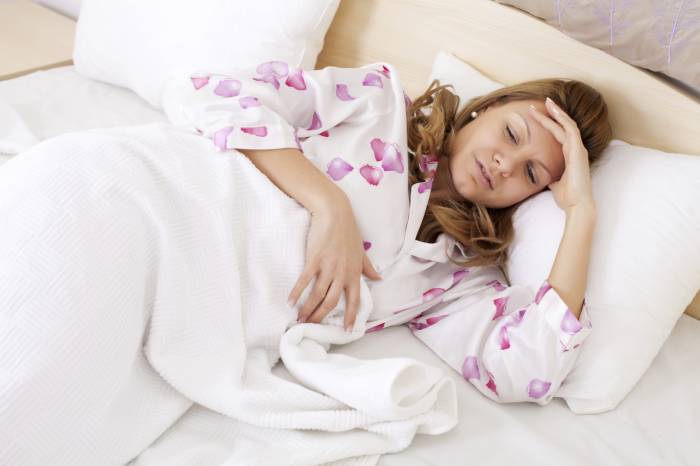
The worries in your head
Stress and anxiety that builds up during the day tends to emerge especially at night, when you climb into bed and are suddenly surrounded by the silence. That’s when that inner voice almost obsessively appears, reminding you of each of your worries. You’ll find yourself thinking of these things for hours when instead you should be sleeping.
Managing stress is complicated and not always easy. But it’s important that you set priorities and ensure that your problems don’t become the most important thing in your life. Let out some steam, breathe deeply, and go to bed free from the clouds in your head so that when you close your eyes all you see are the shadows behind your eyelids.
Put these tips into practice and you’ll eventually overcome your insomnia.

Smoking
True, many people think of smoking as a relaxation method but the problem is that the nicotine is a stimulant that can disrupt your sleep patterns similar to alcohol.
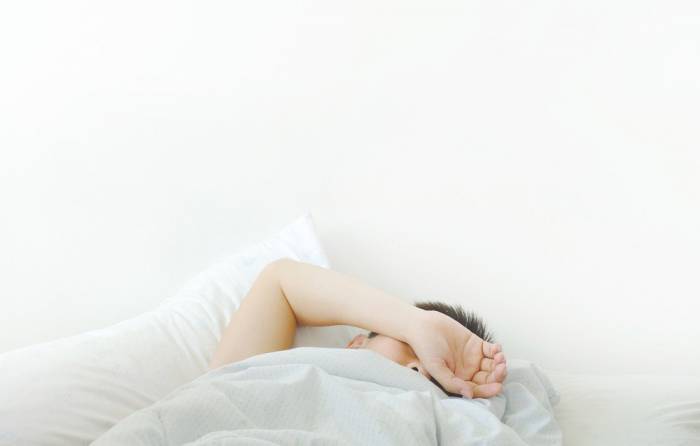
Noise
This one can be difficult for those who may live in a big city with uncontrollable noise outside, but the best sleep to be had is one with few interruptions (think cars, sirens, barking dogs etc). If you are unable to block out some of those pesky noises, consider getting a sound machine that can at least provide a more controllable white noise environment to avoid the onset of your insomnia.

Heavy meals
close to bedtime can disrupt your sleep. The best practice is to eat lightly before bedtime. When you eat too much in the evening, it can cause discomfort and make it hard for your body to settle and relax. Spicy foods can also cause heartburn and interfere with your sleep.
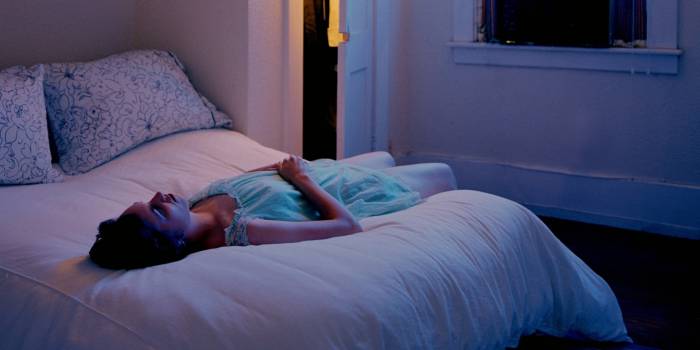
Insomnia & The Brain
In some cases, insomnia may be caused by certain neurotransmitters in the brain that are known to be involved with sleep and wakefulness.
There are many possible chemical interactions in the brain that could interfere with sleep and may explain why some people are biologically prone to insomnia and seem to struggle with sleep for many years without any identifiable cause—even when they follow healthy sleep advice.
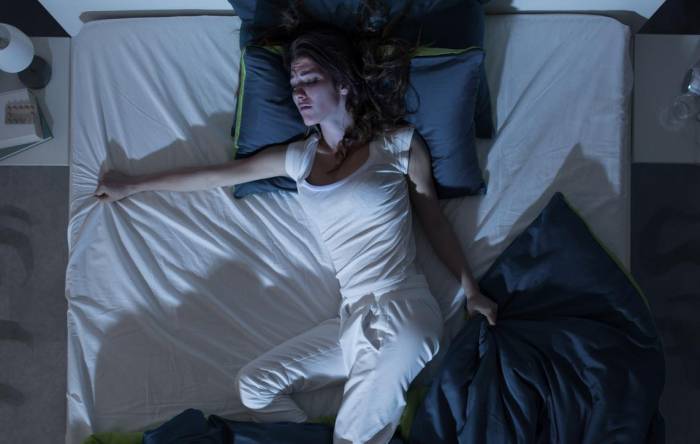
Good Sleep Habits for Beating Insomnia
Good sleep habits, also called sleep hygiene, can help you get a good night's sleep and beat insomnia.
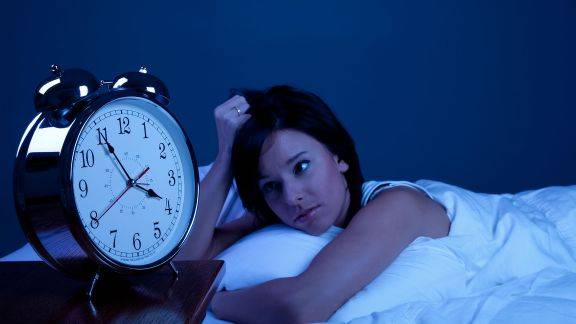
Here are some tips:
Try to go to sleep at the same time each night and get up at the same time each morning. Try not to take naps during the day, because naps may make you less sleepy at night.
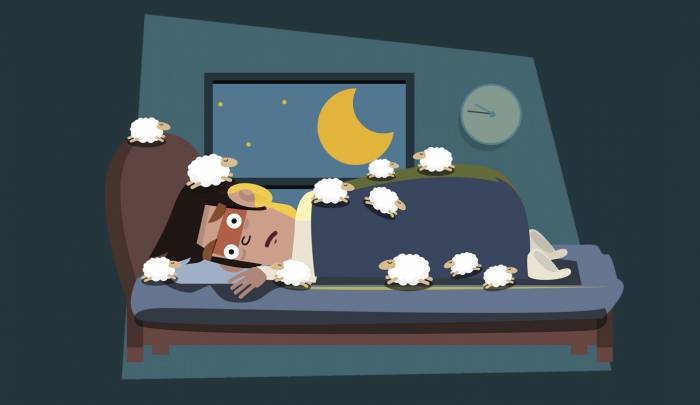
Avoid prolonged use of phones or reading devices ("e-books") that give off the light before bed. This can make it harder to fall asleep.
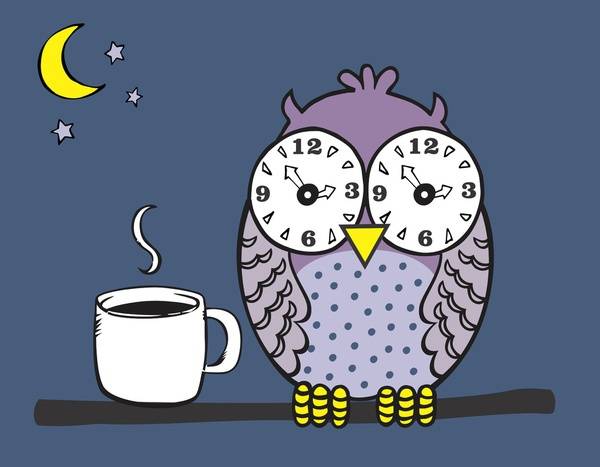
Avoid caffeine, nicotine, and alcohol late in the day.
Caffeine and nicotine are stimulants and can keep you from falling asleep. Alcohol can cause waking in the night and interferes with sleep quality.
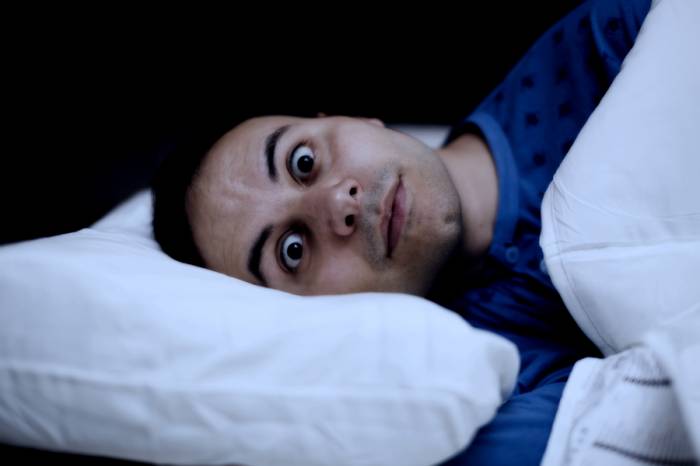
Make your bedroom comfortable.
Be sure that it is dark, quiet, and not too warm or too cold. If the light is a problem, try a sleeping mask. If noise is a problem, try earplugs, a fan, or a "white noise" machine to cover up the sounds.

If you find yourself lying awake worrying about things, try making a to-do list before you go to bed.
This may help you to not focus on those worries overnight.


